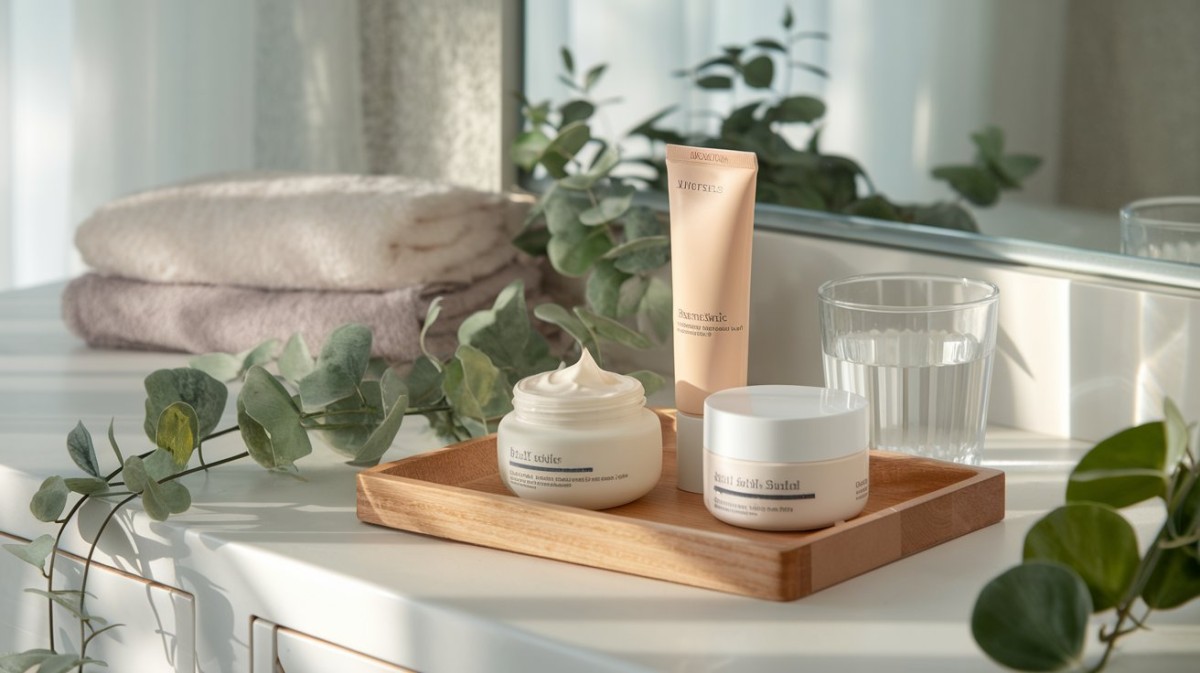Dry skin is an uncomfortable condition where the skin becomes dry and can cause irritation, scaling or dullness in the least. Due to its multiple causes such as environmental factors, ageing or specific lifestyles, the treatment of skin dryness is not a simple problem to solve.
Here, in this blog, we will be providing information about proper skin care tips for dry skin to support moisture and texture and improve your skin in general.
Understanding Dry Skin
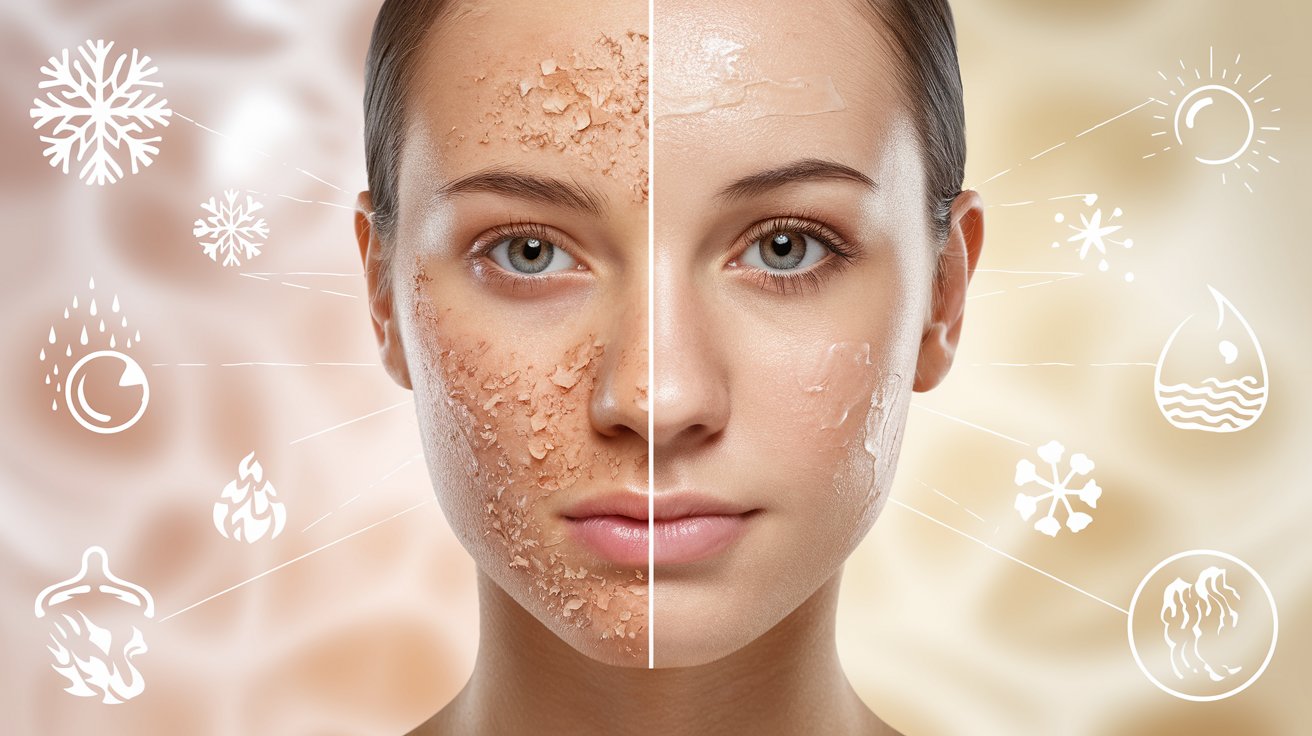
Dry skin is characterised by the loss of the skin’s ability to maintain moisture on its surface. This can lead to various symptoms including flakiness, tightness, itchiness and redness of the skin. Several factors can contribute to dry skin, including:
> Environmental Conditions: Dry weather conditions, low humidity, and continued exposure to sunlight also leaves the skin dry by removing its natural coating of oil.
> Hot Showers: Therefore the skin can be damaged by long exposure to hot water as the barrier of the skin is compromised.
> Harsh Soaps: Soaps and cleansers can be harsh to the skin because they have drying agents in their composition.
> Ageing: With ageing, the skin is less oily since the glands secrete less oil and this results in dry skin.
> Medical Conditions: Some of the other causes of skin dryness include illnesses, such as eczema or psoriasis.
To address these problems adequately, it is necessary to apply an effective regimen for dry skin care.
Skincare Tips for Dry Skin
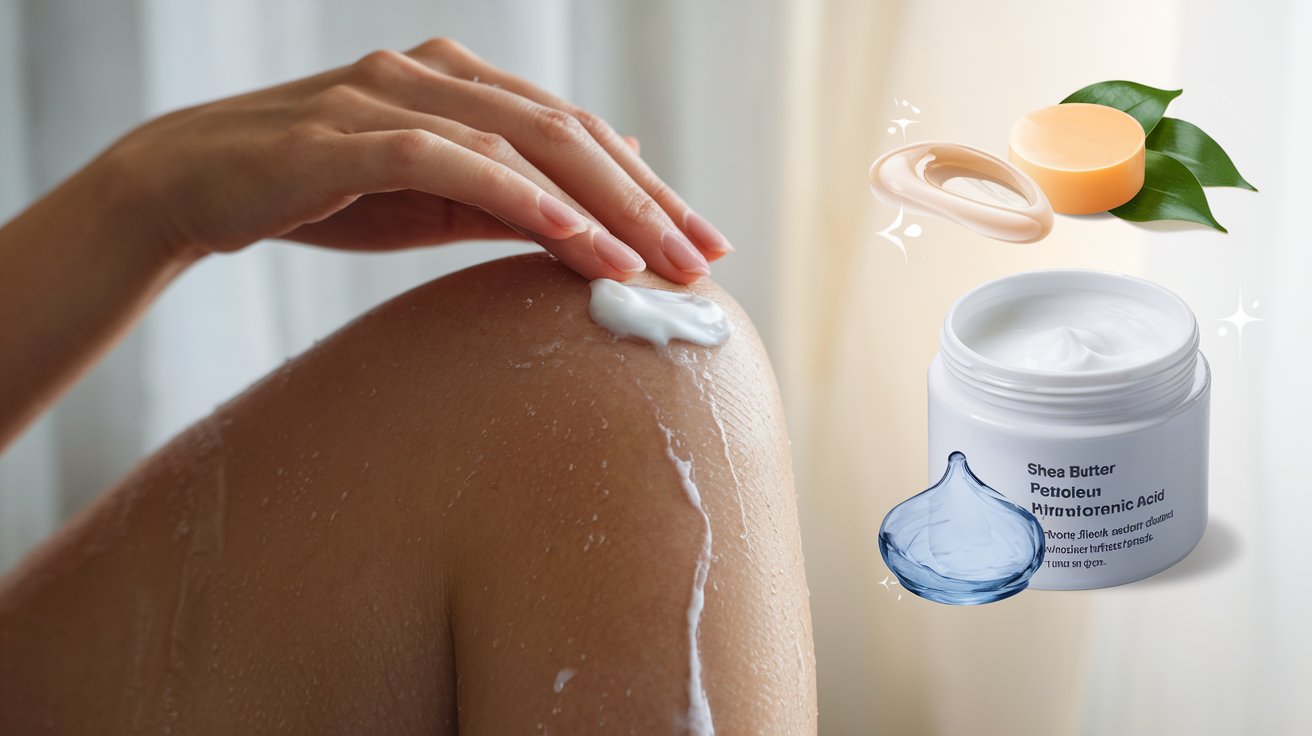
1. Use Gentle Cleansers
The most fundamental process in any skincare regimen is the washing process. Generally when it comes to dry skin you need to make sure that the skin's natural oils are not stripped off by the cleanser. Choose products with lighter formulas that include anything from glycerin to hyaluronic acid in the list of components. Especially avoid ordinary soaps and other preparations containing alcohol which may cause increased skin dryness.
2. Limit Hot Showers
Although warm water is soothing to the body when showering, it removes skin oils and thus leads to skin dryness. This can be ensured with lukewarm water and avoiding taking a shower for more than 5-10 minutes. This also keeps your skin hydrated by maintaining the natural barrier on your skin surface.
3. Moisturise Immediately After Washing
For moisture to be locked in properly, apply a thick layer on your face as soon as you wash, or at the end of a shower. Search for the products with occlusives such as shea butter or petroleum jelly that create a kind of shield on the epidermis that does not let moisture evaporate. Also, you can apply a lotion with ingredients like hyaluronic acid or glycerin that attract moisture on the face skin.
Additional Skincare Tips
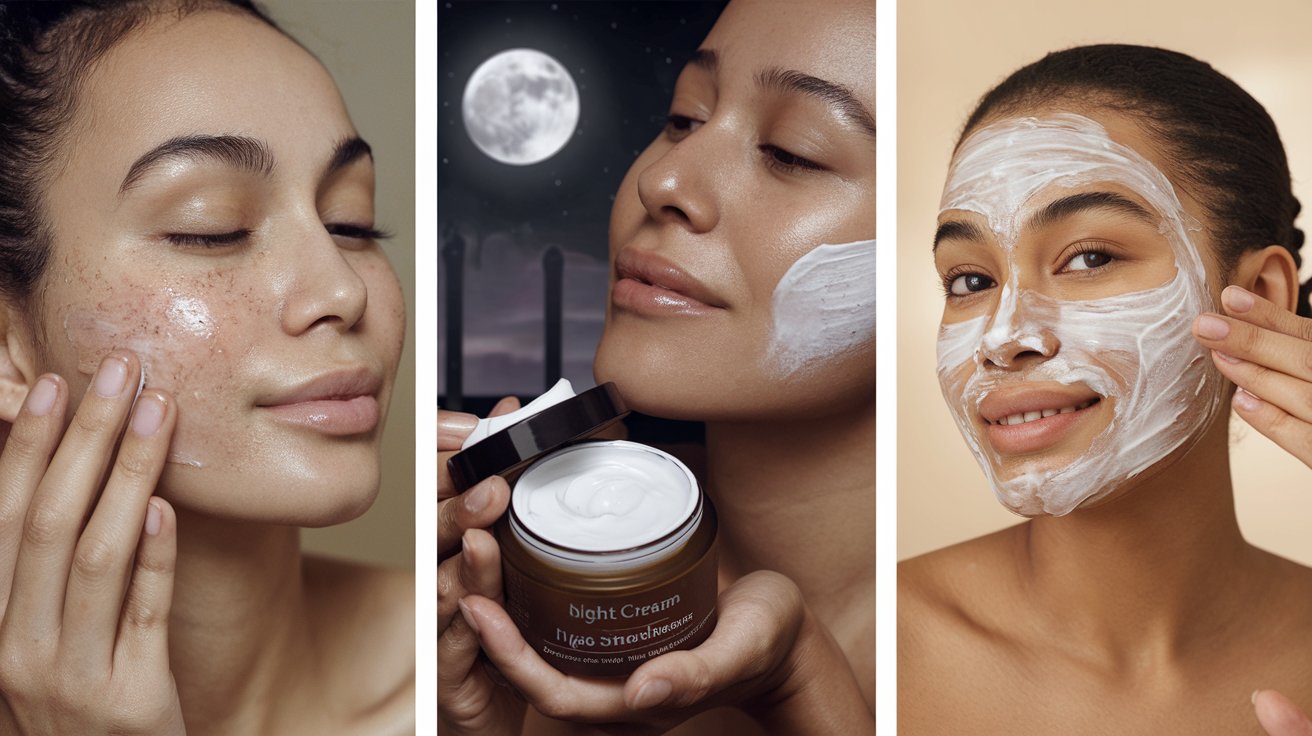
1. Exfoliate Gently
Exfoliation removes the dead skin and stimulates production of new cells; over exfoliation on the other hand accentuates dryness. Do not exfoliate more than two to three times a week and use chemical exfoliants like glycolic acid or salicylic acid rather than physical scrubs that may cause skin sensitivity.
2. Apply a Night Cream
Night creams are created to nourish the skin deep during the night time since it is believed that skin repairs itself at night. Search for products with ingredients that repair the skin barrier while you sleep such as ceramides as well as peptides. The regular use of a night cream will help enhance the skin’s texture while significantly boosting the skin’s moisture retention capacity.
3. Use Hydrating Masks
You can consider taking hydrating masks for a couple of times in a week so that your skin gets an added surge of moisture that it requires. Choose a mask that has ingredients such as aloe, honey or hyaluronic acid in it. Such masks can easily minimise inflammation and make the skin feel moist right after application.
Lifestyle Tips for Managing Dry Skin
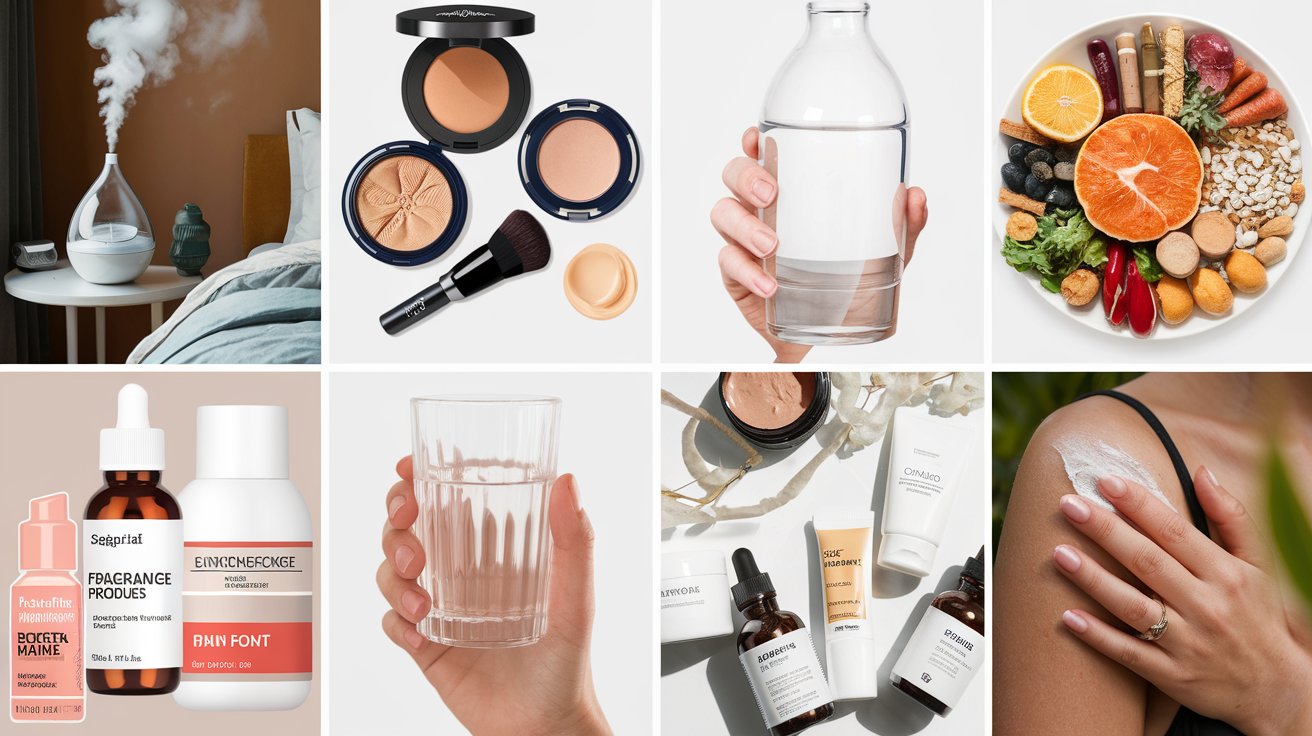
1. Invest in a Humidifier
Low humidity in indoor air increases rough skin and this aggravating factor is more during the cold season. Having a humidifier at home allows maintaining a balanced level of humidity and skin does not lose moisture. Ideally, indoor humidity should be maintained at a range of 30%-50% for the best outcome.
2. Choose the Right Makeup Products
If you use cosmetics, look for ones that are moisturising and do not contribute to dry skin further. Most moisturising or hydrating foundations and concealers can help to nourish skin or at least not dry it out. Steer clear of powdery formulas that can coat themselves on flaky skin, leaving an uneven tone.
3. Stay Hydrated
Skin moisture originates from within; therefore, there is a need to take a lot of water in a day. It is recommended to drink no less than eight glasses of water per day and include food containing a lot of water, like cucumbers, watermelon, etc., to your diet.
4. Follow a Balanced Diet
Healthy foods low in fat content, and packed with vitamins and minerals are essential for proper skin health. Include foods containing omega-3 fatty acids (such as salmon and walnuts), antioxidants (such as berries), and vitamins A and E (like greens) for skin health.
5. Avoid Irritating Ingredients
Avoid or minimise the use of products that include scents, alcohol or other chemicals that can aggravate the skin condition or provoke an allergic reaction. Go for products constituting hypo-allergenic fragrance-free ingredients.
6. Protect Your Skin from the Sun
Prolonged exposure to the sun tends to make skin even drier and opens it up to additional injury. A broad-spectrum sunscreen with at least an SPF of 30 should be worn every day even if you are going outside on a cloudy day to shield your skin from UV radiation.
Also read How to Avoid Flaky Skin on Your Face for more skincare tips to deal with extremely dry, flaky skin.
Conclusion
Much as dry skin can be brought under control, it is important that proper care and treatment be accorded to the skin. Some of these tips include using gentle cleansers, consistent moisturising, avoiding hot water, weekly hydrating masks, using a humidifier, and drinking water all through the day for your skin to regain its lost natural glow.
However, as you know, everyone’s skin type is completely different and it may take some attempts to define the proper skincare products and programs. If necessary, you may still visit a dermatologist so that specific advice conforming to your skin type can be provided since dryness and irritation may persist even when the tips enumerated above are followed. By following the above guidelines, you can get soft, moist, and glowing skin!
